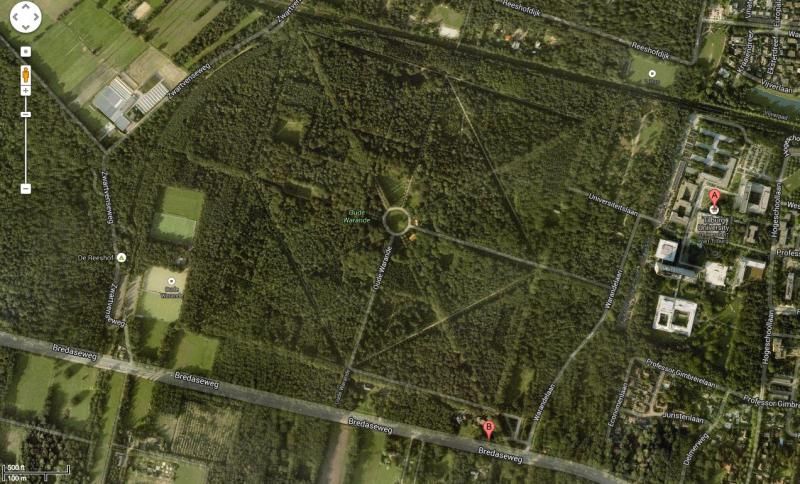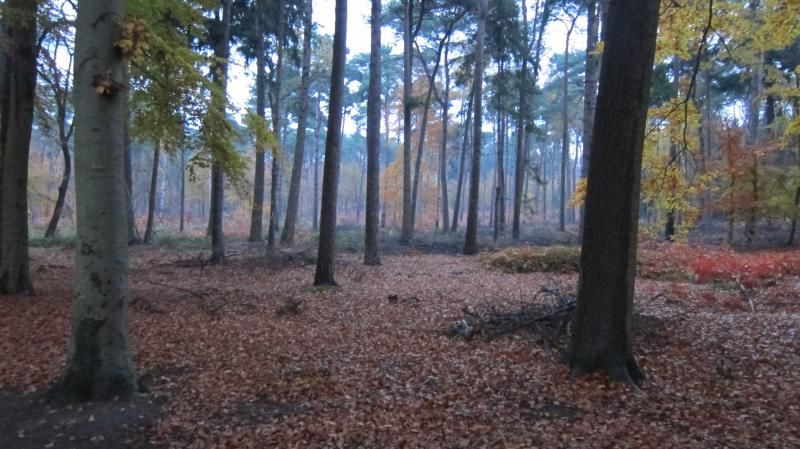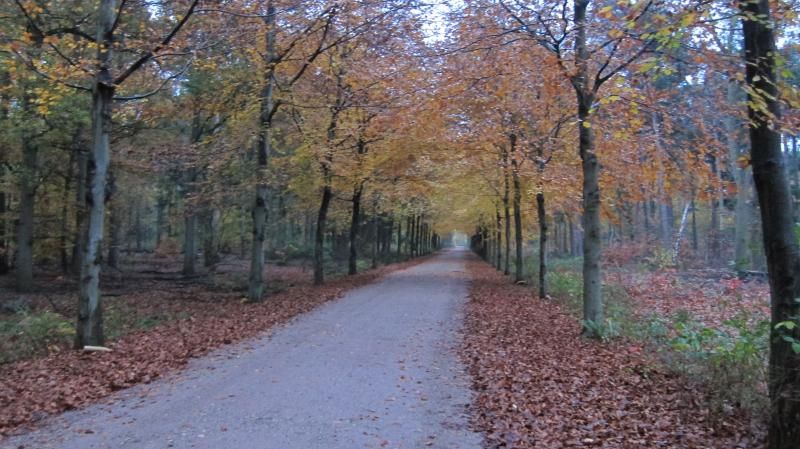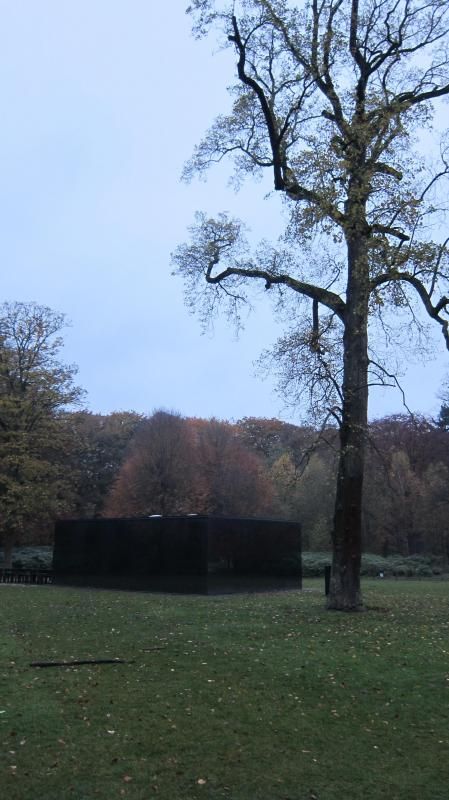In Tilburg, next to the great university, there is a dark, beautiful forest called De Oude Warande. Once a royal forest of some kind, roads and paths are laid out in star pattern superimposed on a series of squares inscribed within the outer boundary:

It is different from the forests of Alaska (no bears) or the Lower 48 (no deer hunters), and different again from the highly cultivated parklands you see in the U.K. De Oude Warande isn't wild, really, although some wild animals undoubtedly live there. It's park-like, although not strictly groomed or cultivated. It wasn't hard to find a quiet place there to do my tai chi exercises, that morning last November:

De Oude Warande seemed worn to me, or (perhaps I am reading too much into it) even careworn, and walking down its roads, thoughts of European history weighed heavily upon me:

As I wandered before my seminar I thought of some of the bad forests of Europe:
Katyn, for example, or
Kampinos, the ancient forest west of Warsaw where they murdered poor
Przepiórka, among many others. Or, if you are German, there was the mad waste of
the Ardennes offensive, and the terrible, pointless
fight in the Spreewald, right at the end of the war. This is deep in the German psyche, right back to
Hansel and Gretel, although one could argue that the German warrior spirit first came of age when the tribes met the Romans
im Teutoburger Wald.
And as I approached the center of that somber vale, I saw in the distance a dark geometric structure, subdued, mournful, standing in silent testament to some unknown sorrow.

Turns out it's a nice coffee shop, called
The Grotto. The girl was very nice, and the coffee was delicious.
The rest of my walk was uneventful.







